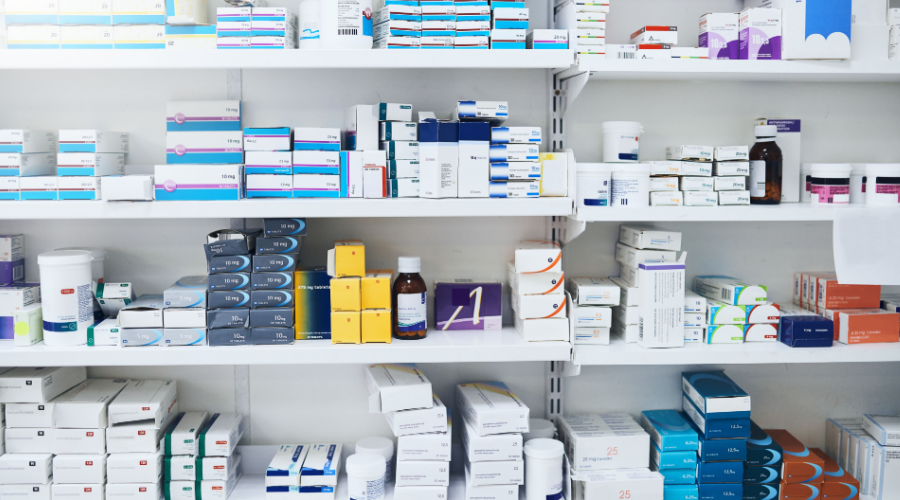Inside: Concrete steps independent community pharmacies can take to reduce DIR fees and increase profits.
Pharmacy DIR fees have been an ugly fact of life since the introduction of Medicare Part D. These fees have continuously grown higher in the past decade, making it increasingly difficult for independent pharmacies to turn a profit or make predictions about their finances.
How to Reduce DIR Fees
If you’re working with third-party payors, DIR fees are inevitable, but that doesn’t mean you can’t take control to lessen their impact. Here are a few ways you can reduce DIR fees, stay profitable, and improve outcomes for patients all at the same time.
Improve performance metrics
While DIR fees are spelled out in your pharmacy contract, they are buried in pages of legal language, and in practice, the way they are applied is often unpredictable and confusing.
One of the best ways you can reduce DIR fees is by working to improve your pharmacy’s performance in key areas. If you achieve high ratings in these areas, it can result in lower DIR fees, and it also has the added benefit of improving outcomes for your patients.
These are the factors that can have the biggest effect on pharmacy DIR fees:
Medication Adherence
Medication adherence, particularly when it comes to managing chronic diseases like diabetes, high blood pressure, and high cholesterol, can have an outsized effect on your DIR fees. It’s typically measured by one of two metrics:
- Medication Possession Ratio = Sum of Days Supplied for All Fills in Time Period ÷ Days in Time Period
- Proportion of Days Covered = Number of Days Covered by Medication During Time Period ÷ Days in Time Period
Since many people don’t adhere to their medication because they’ve forgotten, utilizing text message reminders and easy digital refills can have a big impact on adherence.
Offer medication synchronization, so patients can pick up all their medications of the month at one time. Patients using med sync are almost 2.5 times more likely to be adherent, according to an NCPA study.
Medication Therapy Management
Medication Therapy Management (MTM) is another service you can offer at your pharmacy that will improve outcomes and reduce pharmacy DIR fees.
MTM services help patients understand their medications, and when they understand how medications affect them, they are more likely to stay adherent and will have better health outcomes. And it has the added benefit of ultimately reducing costs.
Use a software program like OutcomesMTM to conduct medication reviews efficiently. By keeping careful track of all your reviews, you can prove to health plans that you are taking patient care seriously.
Dispense Strategically
There are operational criteria that, if met, can decrease your DIR fees. By increasing the percentage of generics you are dispensing, you can lessen the impact of DIR fees and increase your overall reimbursement.
Other operational tactics you can take include increasing the percentage of 90-day supplies you dispense and maximizing formulary compliance.
Tip: Use Technology
Even if you are providing all the right services and taking the right safety precautions, it can be hard to tell if you’re moving the needle on your performance metrics enough to have an impact on DIR fees.
To aid you in keeping track of your performance, consider investing in a technology platform like Amplicare. Technology can give you a clear idea of your performance and identify new opportunities to improve. The right program will help you control the independent variables affecting your performance metrics and improve your bottom line.
Partner with a PSAO
When it’s one small independent pharmacy going up against a giant PBM, it can be difficult to manage and understand DIR fees. Joining a pharmacy services administration organization, or PSAO, can help.
A PSAO will group you with other pharmacies and negotiate for favorable terms that result in lower DIR fees on your behalf. A PSAO can also seek better terms in other parts of the contract to make up for the damage done by DIR fees.
When you are a member of a PSAO, your performance metrics are sometimes measured for the whole group instead of your individual store. This can mean it’s harder for you to reduce DIR fees by making changes at your individual pharmacy, but it also means that you can benefit from other stores’ good practices.
Offer cash services
If a third party is paying for a product, it’s probably going to have DIR fees associated with it. You can lessen the impact of DIR fees by offering services that sidestep PBMs.
There are plenty of revenue opportunities in the pharmacy that don’t result in any DIR fees because they don’t involve third-party payors. If you can find one or more of these services that work for you and your patients, you can make your pharmacy more profitably.
Here are a few opportunities for DIR-free profits:
Join CPESN
Another way to avoid DIR fees is to join a clinically integrated network like CPESN. CPESN uses an entirely new payment model to provide enhanced services to patients and get paid directly instead of dealing with PBM interference.
In order to participate in CPESN, pharmacies have to offer these five services:
- Medication reconciliation
- Clinical medication synchronization
- Immunizations
- Comprehensive medication review
- Personal medication record
Healthcare costs typically decrease for patients under this model, but independent pharmacies get a bigger slice of the profits, making it better for both the patients and the business.
Advocate for reform
DIR fees are currently a tough reality for independent pharmacies, but it doesn’t always have to be this way. Federal legislation could lessen the impact of DIR fees by making them more predictable and transparent.
As an independent pharmacy owner, you can have an impact on that legislation by advocating for change to your representatives. Contact them regularly to let them know where you stand, and offer yourself as a resource to help shape legislation in a way that benefits community pharmacies.
DIR fee reform is a bipartisan issue, and change is possible. The louder you advocate for it, the more of a priority it becomes for legislators.
A Member-Owned Company Serving Independent Pharmacies
PBA Health is dedicated to helping independent pharmacies reach their full potential on the buy-side of their business. Founded and owned by pharmacists, PBA Health serves independent pharmacies with group purchasing services, wholesaler contract negotiations, proprietary purchasing tools, and more.
An HDA member, PBA Health operates its own NABP-accredited secondary wholesaler with more than 6,000 SKUs, including brands, generics, narcotics CII-CV, cold-storage products, and over-the-counter (OTC) products — offering the lowest prices in the secondary market.












